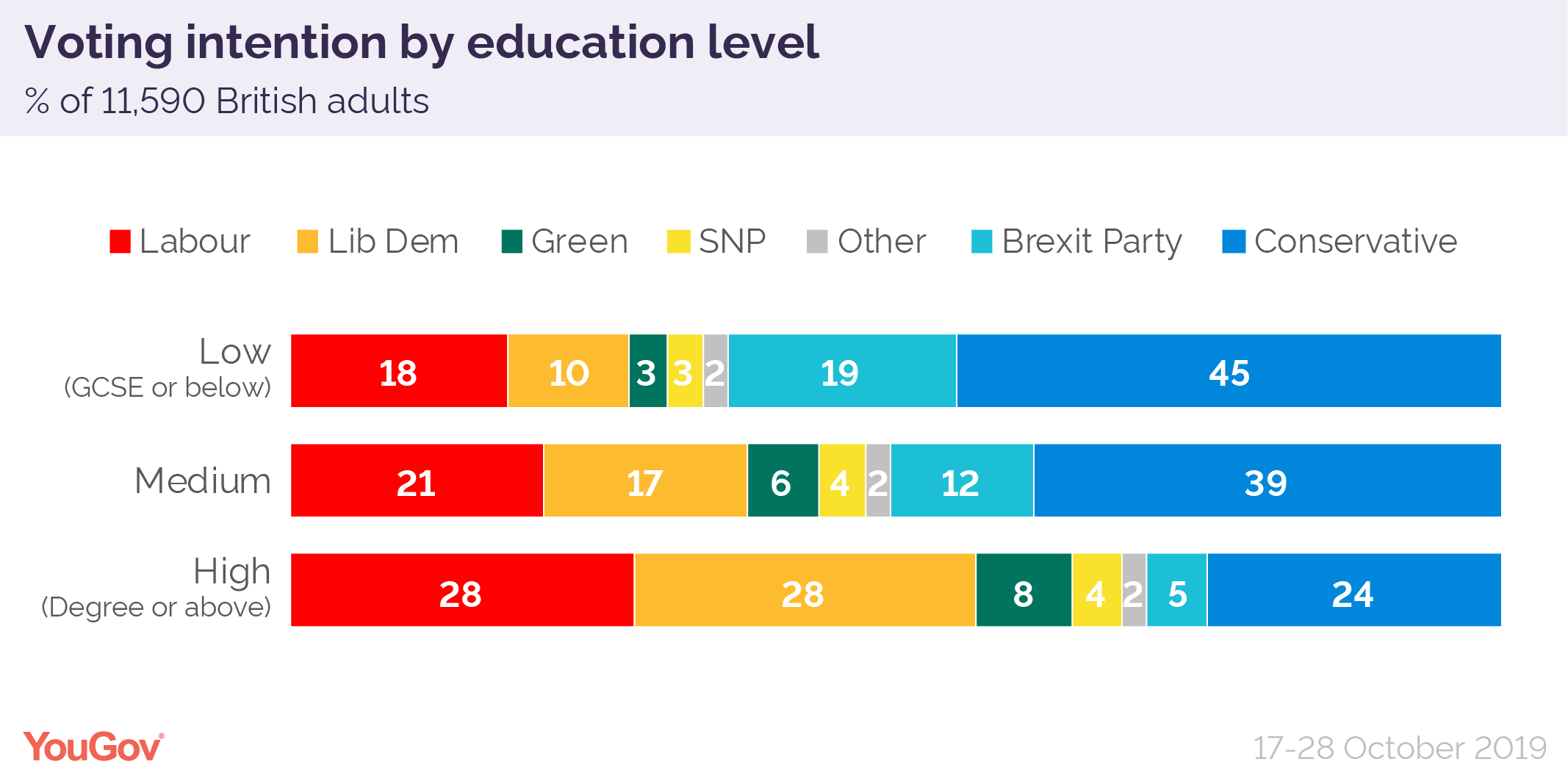After last week’s hoo-ha about “Workington Man”, some recent polls have suggested the Tories could be ahead in Sedgefield and Bolsover, two constituencies which in living memory returned Labour candidates with 70 or even 80% of the vote.
The Conservatives last won Sedgefield in 1931, and have never won Bolsover, nor its forerunner seats, but there is a big shift in politics going on so who knows; while the Conservatives are four points behind Labour among voters with degrees, they’re now 27% ahead for those with only GCSE-level qualifications:

This process is known as the “Great Realignment”, something best summarised by Stephen Davies of the capitalist running dog think-tank the Cato Institute.
The old political axis was defined by the main aligning issue of government intervention and “egalitarian spending”, but today it’s about identity: diversity v solidarity, global v local, remain v leave.
The realignment began in the 1990s but, as it gained momentum, moved towards a more decisive shift in 2016 when large numbers of socially conservative Labour voters backed a Tory-led initiative to leave the European Union, with numerous small-l liberal Conservatives going the other way. At the following year’s general election huge numbers of voters swapped parties, with the Tories winning Mansfield and losing Kensington – the UK’s richest constituency.
In this, as with so many trends, we’re following the US; so in Fairfield County, Connecticut, hedge fund capital of the world, Hillary beat Trump by 20 points, in Aspen she won by 45 points, and in ultra-exclusive Marin County in northern California by 50 points.
Among people listed on the Bloomberg Billionaires Index, Hilary raised 20 times more than Trump, employees at private investment funds donated $47.6m to Hillary and $19,000 to the Donald, while those who work for Google, Facebook, Apple, Microsoft, and Amazon donated by a margin of 60-to-1.
These facts are all cited in Tucker Carlson’s 2018 book Ship of Fools, which I’ve been reading recently. Tucker is a bellwether of conservatism: more nationalistic and less overtly religious but notably hostile to big business in a way that would have been unthinkable for a mainstream conservative a generation back. He recently called big business a bigger threat to freedom than government and, with the whole woke capital phenomenon, I think he has a point.
He’s especially scornful of Amazon, Uber and Facebook, and the liberal journalists who write headlines like “The Peculiar Genius of Jezz Bezos” — all because these companies are all seen as progressive or at least anti-conservative. That’s because most big businesses these days are anti-conservative.
Watching the recent Margaret Thatcher documentary, which showed footage of the 1970s, with liberal economists in London set against working-class white men in sideburns fighting for higher wages, I wondered which of these two groups would now be considered on the Right. Hard to tell.








Join the discussion
Join like minded readers that support our journalism by becoming a paid subscriber
To join the discussion in the comments, become a paid subscriber.
Join like minded readers that support our journalism, read unlimited articles and enjoy other subscriber-only benefits.
Subscribe